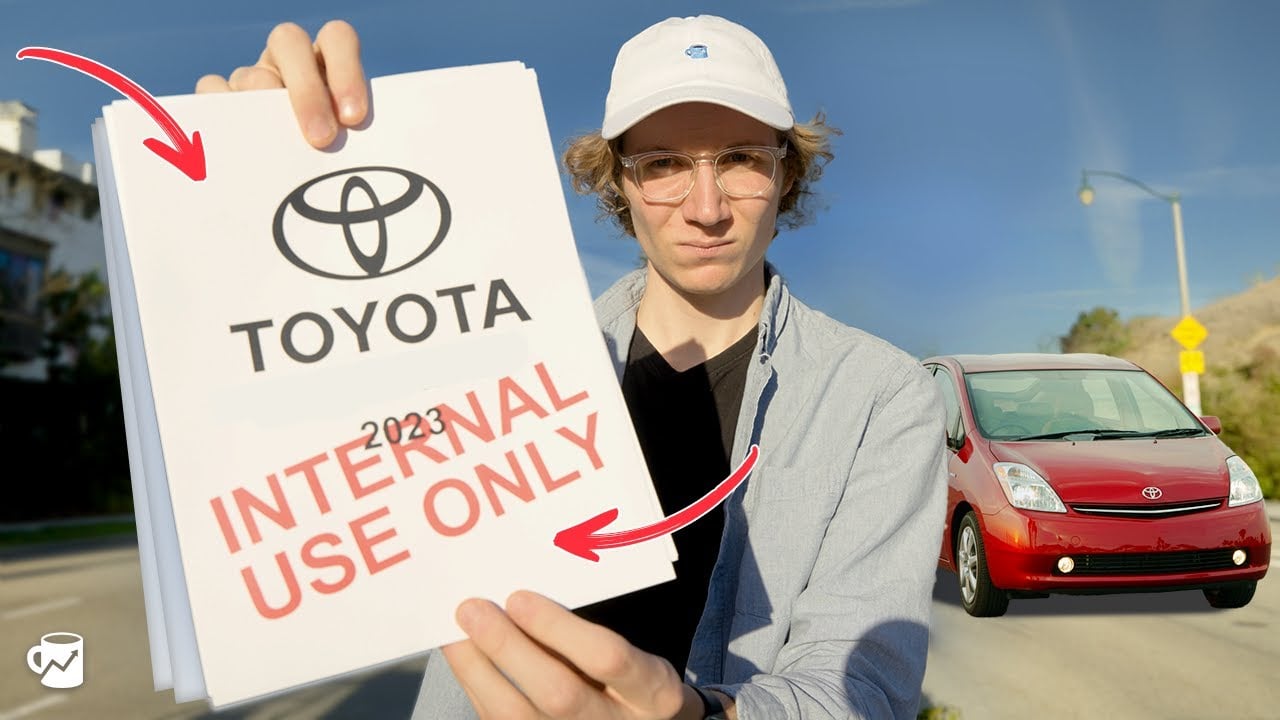Toyota makes hybrids, they outsell all other hybrid manufacturers, and middle-america “doesn’t want” electric vehicles while also demonstrating they don’t know about electric vehicles. Same story over the past decade, not too much has changed except the number of BEV on the road in total.
Toyota is a conservative (not the political kind) company, so it’s not that big a surprise.
On top of that, there’s the fact that Toyota have been investing heavily in hydrogen fuel cell technology for years, instead of BEVs. They put their bets on the wrong horse, and have been slow to adapt as a result.
Sure, but all of these companies have had Hydrogen programs. GM had hydrogen cars back in 2009 on the road. BMW’s hydrogen program is still going strong. Toyota was just smart enough to capture the incentive money while they could pretend it wasn’t a boondoggle. 😆
You do realize that basically all the large manufacturers are still working on hydrogen tech. It’s going to replace gas ICE vehicles, not EVs. EVs have their place in cities and short transport but they’re not efficient enough to work for large machinery or long hauls. There will be a mixture just as we have EVs and ICE gas vehicles now.
It’s going to replace gas ICE vehicles, not EVs. EVs have their place in cities and short transport but they’re not efficient enough to work for large machinery or long hauls.
If your argument against EV for long haul and large machinery is “inefficiency” then I’m not sure how you’re arriving that Hydrogen is efficient. Gaseous hydrogen is very low density, way WAY lower than petroleum. I’ll agree that battery technology today isn’t the best fit for long haul either. However battery technology keeps getting better. Today’s prices are for battery are getting cheaper, lifetime of battery is increasing, and charging times are decreasing.
Hydrogen storage/density has essentially been stagnant for decades. Where is the massive increase needed to support Hydrogen in long haul? Where is the nationwide refueling infrastructure needed for long haul? Hydrogen refueling stations are fewer today in the USA then even just a year ago.
and hydrogen needs to be stored in the vehicle at 70 psi.
Not 70 psi, 70 MPa (10,000 psi) If we’re talking about what toyota is doing with the Mirai.
holy cannoli, you’re right! how does that do in a crash?
That certainly is news to me. After all these years and the almost total lack of hydrogen infrastructure in the US, I had assumed that it was considered a dead end.
That said, it does makes sense; I hadn’t considered that hydrogen tech was more in competition with ICEs than with EVs.
Does ICE means internal combustion engine?
Yup.
Personally I think hybrids are the way forward, you don’t really have range anxiety when the generator is built in. I really want to get my hands on one of those Edison motors kits and drop it into a late 60s chevy or mid 90s ford.
It depends on use case. If you’re driving in a city or living in a small country or state, electric makes a lot of sense.
Range anxiety only really kicks in if driving long distances. But 300 miles on a full charge is already common among electric cars. I’m in the UK - that’d easily covet the 200 mile journey from Manchester to London.
I think the real anxiety around range is a lack of chargers either on the journey or at the destination. Without that infrastructure then it will put people off electric cars. But the infrastructure is getting better every day -at least in Europe anyway.
hybrids might be a PART of the way, but there’s absolutely no reason they need to be the only way. For many many use cases BEVs already work better than hybrids and those cases are only going to grow in number as the charging infrastructure is built out and energy storage tech improves. Maybe there will always be fringe cases where hybrids are practical, maybe not.
In what case is a BEV better than hybrid already?
True hybrids that can get 50+ mpg are better than ICE for sure. But plug-in hybrids are not the way forward. You can travel 20-30 miles on the tiny electric battery then it’s a full on ICE vehicle and mpg usage. Environmental impact on those plug-in hybrids is way worse the more miles you drive, really only a good fit for low mileage drivers that will be consistent with plugging in at home.
deleted by creator








